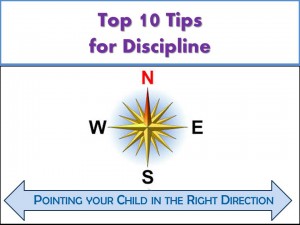 |
| Nie wat 'n mens altyd verwag nie! |
Friday, 31 August 2018
Monday, 27 August 2018
IS YOUR TEEN AT RISK?
A Questionnaire to Assess Risk
If you, or someone you know is having trouble with a teen, take a few moments and answer the following questionnaire to see if this teen is at risk. This can serve as a point of reference for you in understanding the severity of the problems your teen is currently facing.
Sometimes the problems are so severe that they can only be properly addressed by getting professional help in a controlled environment, such as a residential center, treatment program or specialty school that is designed to deal with troubled teens. Other times problems can be resolved right in the home by setting better limits and tightening up the basic family rules and structure.
After completing the questionnaire, count how many questions you answer “yes” to and refer to the scoring guide which will offer suggestions, and recommendations based on the results of your own responses.
Are you concerned about your child’s well being and their future?
If you, or someone you know is having trouble with a teen, take a few moments and answer the following questionnaire to see if this teen is at risk. This can serve as a point of reference for you in understanding the severity of the problems your teen is currently facing.
Sometimes the problems are so severe that they can only be properly addressed by getting professional help in a controlled environment, such as a residential center, treatment program or specialty school that is designed to deal with troubled teens. Other times problems can be resolved right in the home by setting better limits and tightening up the basic family rules and structure.
After completing the questionnaire, count how many questions you answer “yes” to and refer to the scoring guide which will offer suggestions, and recommendations based on the results of your own responses.
Are you concerned about your child’s well being and their future?
Are you concerned that your teen may be sexually promiscuous?
Are you exhausted and worn out from your teen’s defiant and/or destructive behavior and choices?
Are you worried that your teen may not finish high school?
Do you find yourself picking your words carefully when speaking to your teen, so as not to elicit a verbal attack or rage from them?
Do you have a lack of trust with your teen?
Do you have trouble getting your teen to do simple household chores or homework?
Do you suspect at times you have had money or other valuables from your home?
Do you suspect that your teen sometimes lies or is dishonest with you?
Do you think your teen is possibly using or experimenting with drugs/alcohol?
Does your teen associate with a bad peer group?
Does your teen engage in activities you don’t approve of?
Does your teen ever display violent behavior?
Does your teen have problems with authority?
Does your teen seem depressed/withdrawn?
Does your teen seem to constantly be in opposition to your family values?
Does your teen seem to demonstrate a lack of motivation?
Does your teen seem to lack self-esteem and self-worth?
Does your teen struggle with basic family rules and expectations?
Does your teen’s behavior concern you for their safety?
Has your teen ever been suspended, expelled, truant, or had a drop in school grades?
Has your teen ever displayed any evidence of suicide ideation?
Has your teen had problems with the law?
Are you exhausted and worn out from your teen’s defiant and/or destructive behavior and choices?
Are you worried that your teen may not finish high school?
Do you find yourself picking your words carefully when speaking to your teen, so as not to elicit a verbal attack or rage from them?
Do you have a lack of trust with your teen?
Do you have trouble getting your teen to do simple household chores or homework?
Do you suspect at times you have had money or other valuables from your home?
Do you suspect that your teen sometimes lies or is dishonest with you?
Do you think your teen is possibly using or experimenting with drugs/alcohol?
Does your teen associate with a bad peer group?
Does your teen engage in activities you don’t approve of?
Does your teen ever display violent behavior?
Does your teen have problems with authority?
Does your teen seem depressed/withdrawn?
Does your teen seem to constantly be in opposition to your family values?
Does your teen seem to demonstrate a lack of motivation?
Does your teen seem to lack self-esteem and self-worth?
Does your teen struggle with basic family rules and expectations?
Does your teen’s behavior concern you for their safety?
Has your teen ever been suspended, expelled, truant, or had a drop in school grades?
Has your teen ever displayed any evidence of suicide ideation?
Has your teen had problems with the law?
Has your teen lost interest in former productive activities, hobbies or sports?
Has your teen’s appearance and/or personal hygiene changed?
Is your teen angry or display temper outbursts?
Is your teen manipulative and/or deceitful?
Is your teen verbally abusive?
No matter what rules and consequences are established, do you feel that your teen will defy them?
When dealing with your teen, do you often feel that you are powerless?
Is your teen at risk? What your results indicate:
18+: High risk.
Get help! A residential treatment program or specialty boarding school is strongly recommended.
9-17: Borderline risk.
It is possible that the problems can be resolved by tightening up the family rules and structure. However, it may be that your child is at-risk. Residential treatment program or specialty boarding school needs to be considered. Some parents consider a boot camp or wilderness program.
Up to 8: Moderate risk.
Tighten up family rules/understandings, and be consistent with your monitoring and follow through, you may consider counseling or a therapist.
Questionaire Provided By: Help For Troubled Teens
© 1999 Teen Help Adolescent Services All Rights Reserved.
(A lot more information here - go and visit this web.)
Has your teen’s appearance and/or personal hygiene changed?
Is your teen angry or display temper outbursts?
Is your teen manipulative and/or deceitful?
Is your teen verbally abusive?
No matter what rules and consequences are established, do you feel that your teen will defy them?
When dealing with your teen, do you often feel that you are powerless?
Is your teen at risk? What your results indicate:
18+: High risk.
Get help! A residential treatment program or specialty boarding school is strongly recommended.
9-17: Borderline risk.
It is possible that the problems can be resolved by tightening up the family rules and structure. However, it may be that your child is at-risk. Residential treatment program or specialty boarding school needs to be considered. Some parents consider a boot camp or wilderness program.
Up to 8: Moderate risk.
Tighten up family rules/understandings, and be consistent with your monitoring and follow through, you may consider counseling or a therapist.
Questionaire Provided By: Help For Troubled Teens
© 1999 Teen Help Adolescent Services All Rights Reserved.
(A lot more information here - go and visit this web.)
Wednesday, 22 August 2018
Wegdraai ... 'n settlement 15 km buite Groblershoop
Net buite Groblershoop ...
Monday, 20 August 2018
The TOP 10 TIPS for raising teenagers:
 Here are the Top 10 Tips for raising teenagers:
Here are the Top 10 Tips for raising teenagers: 1. Respect and listen to them.
2. Reward increasing maturity with more freedom.
3. Take away privileges if they can’t handle the freedom.
4. Set clear and firm rules.
5. Hold them accountable – set and follow through with consequences.
6. Expect them to keep their word and you do the same.
7. Don’t take difficult behaviors as a dare or challenge.
8. Accept that peers are an important influence.
9. Know that teens need you in their lives, but on their terms.
10. Continue to share your values.
As teens move toward greater independence, they often rebel and resist parental rules. This requires parents to adjust some of their tried-and-true approaches that may have been effective when their kids were younger.
Changing some rules and giving more privileges as teens show better judgment are ways you can help them to slowly gain maturity.
Parents do best if they do not take their teens’ actions as personal assaults on them, but rather if they think their kids are “just doing their job” of growing up.
Teens are rapidly changing and often their lives are filled with emotional, physical, intellectual, and social turmoil. Understanding this helps parents manage their child’s new and rocky stage of development.
Remember that teens can be passionate, exuberant, fun, idealistic, and creative. Raising them can fill your life with the same.
(More information here.)
Wednesday, 15 August 2018
Monday, 13 August 2018
The TOP 10 TIPS for discipline:
 Here are the Top 10 Tips for discipline:
Here are the Top 10 Tips for discipline:1. Be the leader and teacher in your home.
2. Discipline means “to teach.”
3. Discipline does not mean “to punish.”
4. Remain calm even if you have to fake it.
5. Set clear rules and follow through with consequences.
6. Consider your children’s age and abilities when making
demands.
7. Be flexible but don’t “cave” to avoid conflict.
8. Be on the same page with others who discipline your kids.
9. Brainstorm with your kids to solve problems.
10. Build a loving relationship with your kids so they will listen to you.
Before you discipline your child, ask yourself, “What does he need to learn in this situation?” Maybe he needs to learn to use his words instead of hitting or how to calm himself down.
Parents need to guide their children and teach them the skills they will need to function in the world. Discipline helps kids learn to control themselves and become responsible adults.
There is a wide range of healthy discipline approaches. Parents should avoid the extremes of being too lax and neglectful (not providing enough guidance) or being too strict (using harsh punishment or not being respectful).
(More information here.)
Thursday, 9 August 2018
Subscribe to:
Comments (Atom)





